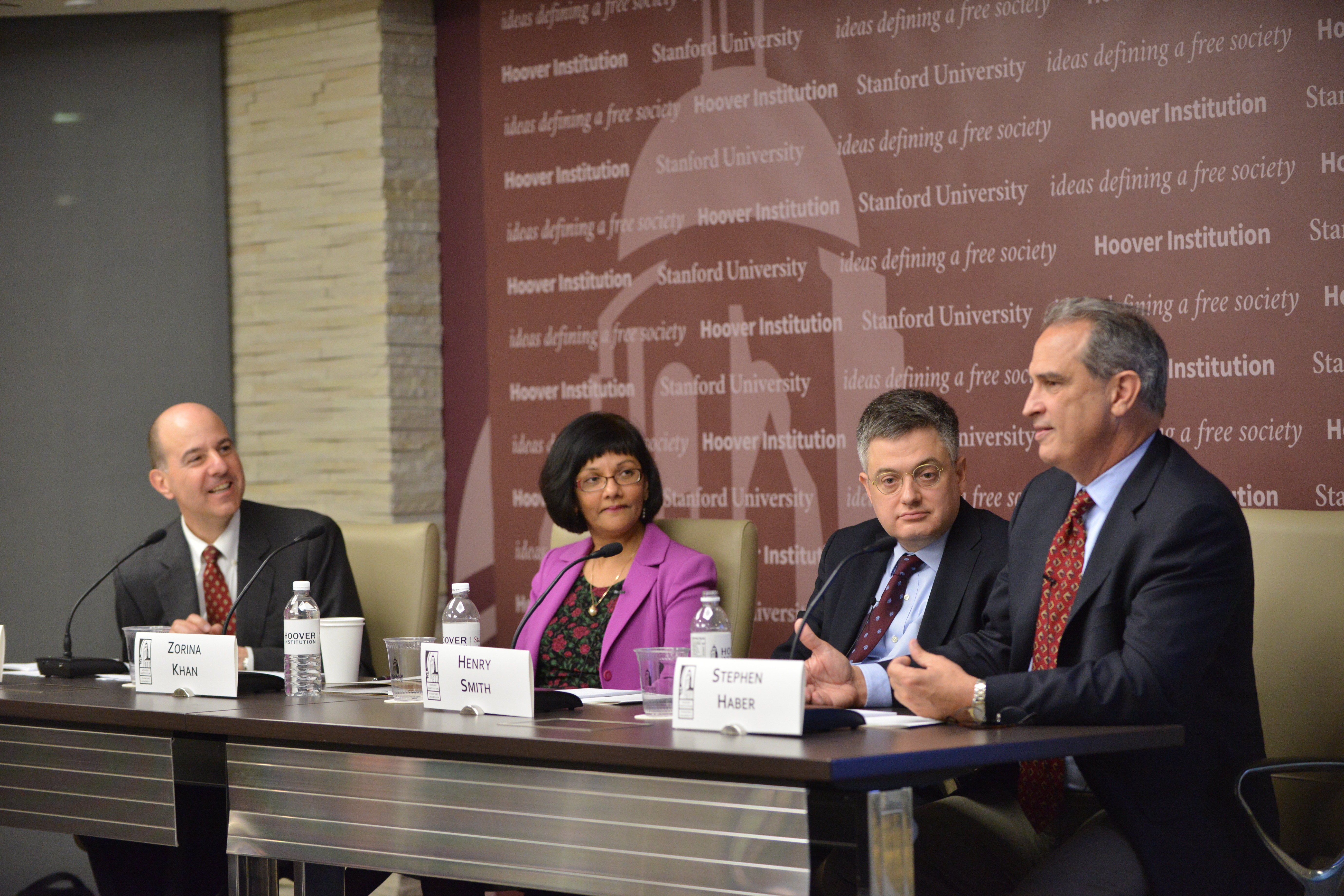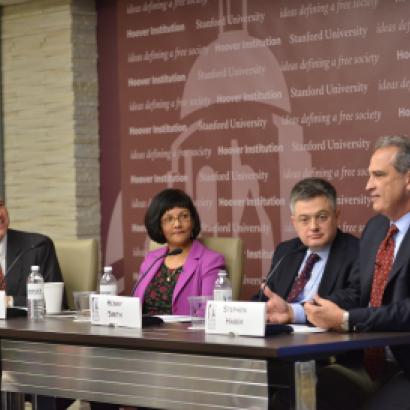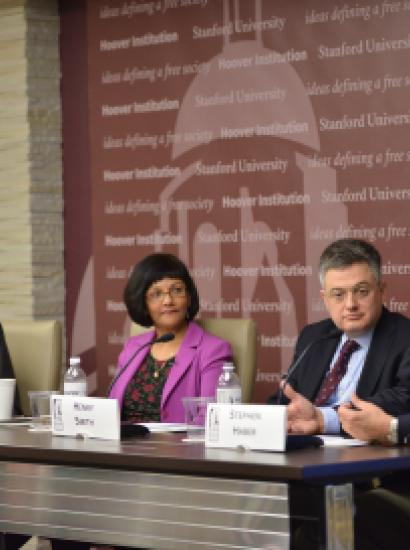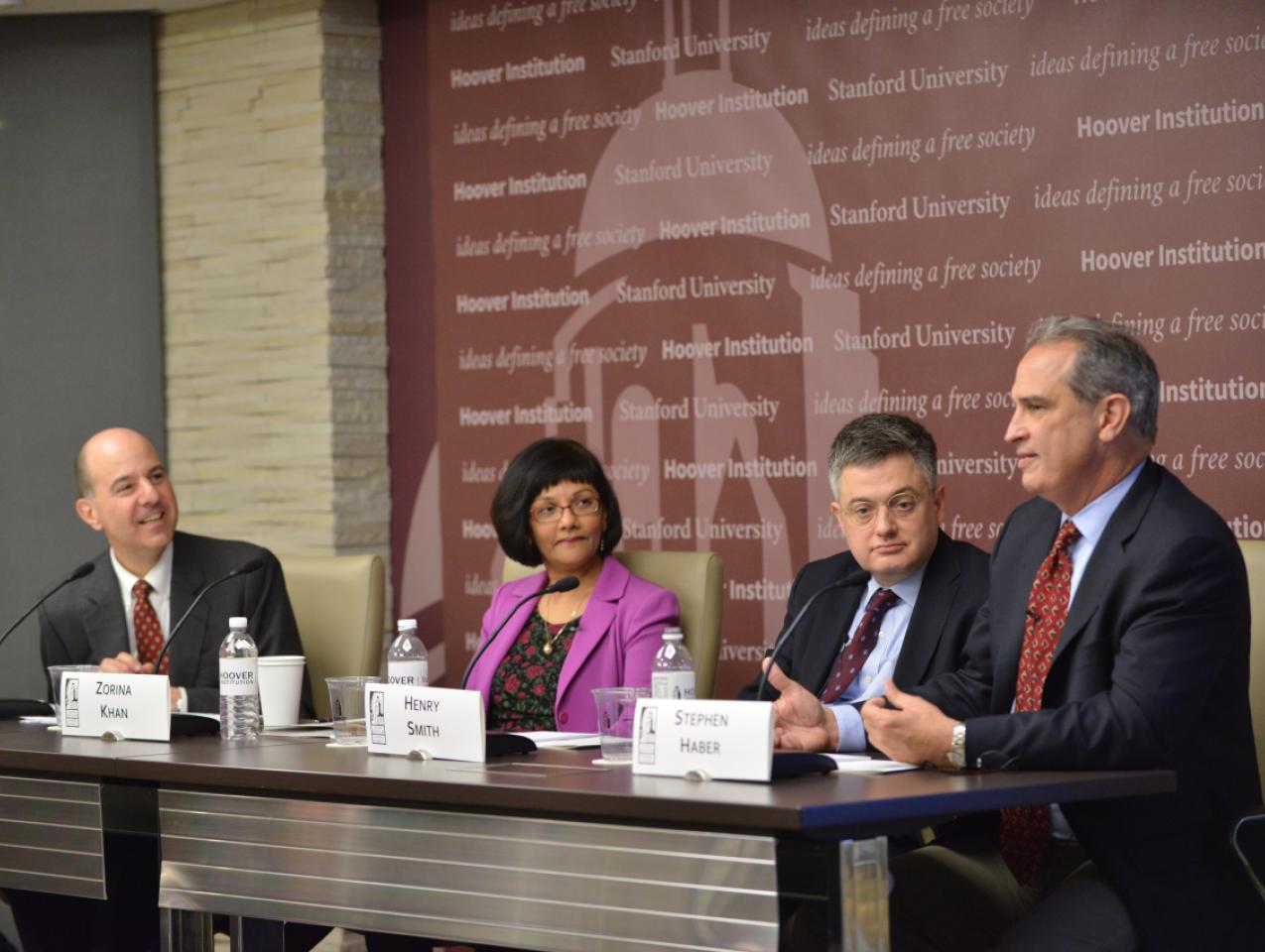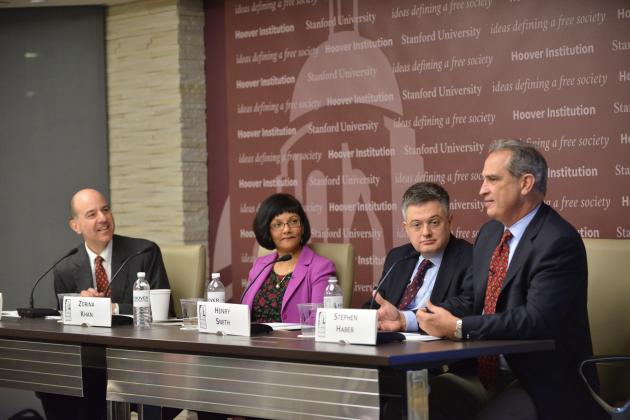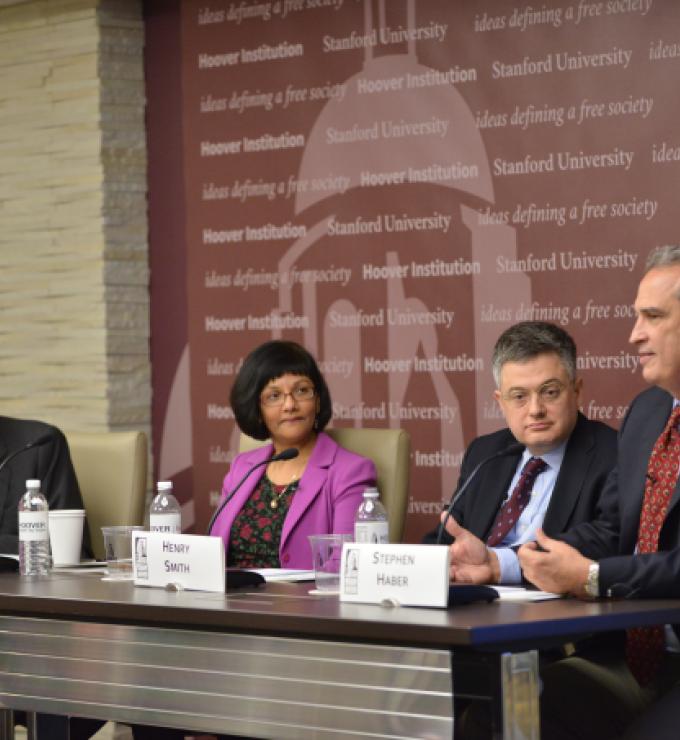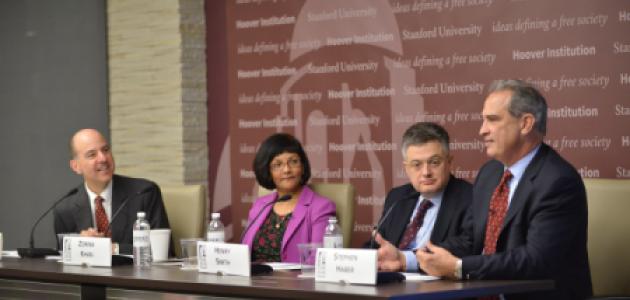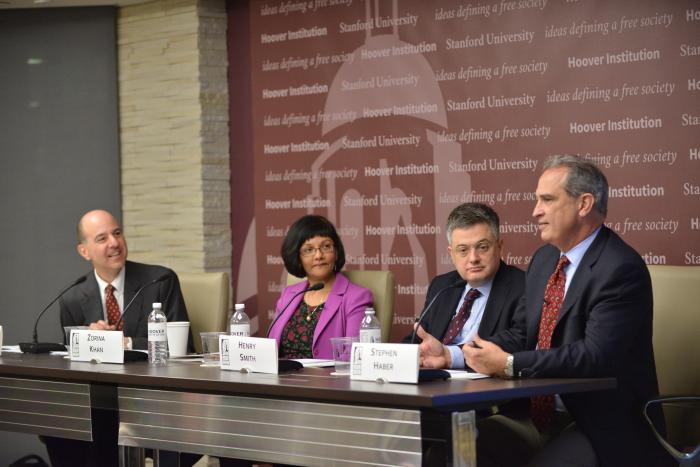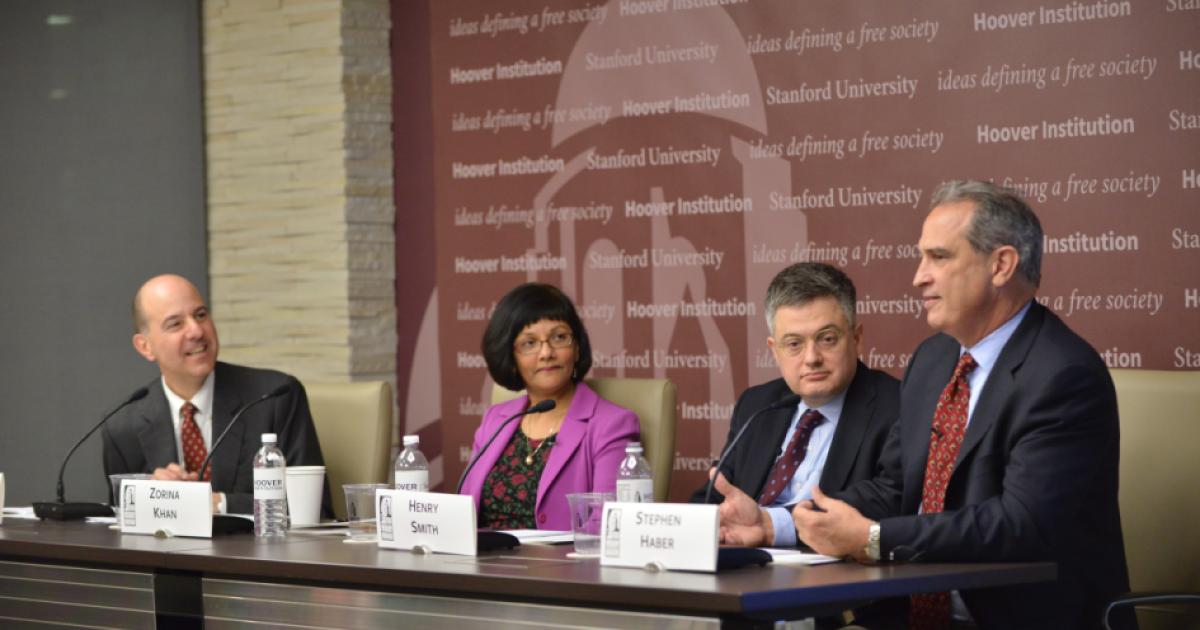Three Edison Visiting Scholars at the US Patent and Trademark Office (USPTO) and a panel of researchers made presentations at a June 16, 2015, Hoover Institution–USPTO joint symposium in Washington, DC, that addressed the academy’s role is in evidence-based policy making for intellectual property. Part of the Hoover project on Intellectual Property, Innovation, and Prosperity (Hoover IP²), the symposium was sparked by the ongoing debate in Washington over the impact the US patent system has on innovation and trade and whether widespread reform of the patent system is necessary.
A roundtable discussion of how the academy can contribute to intellectual property (IP) policy was chaired by Commissioner F. Scott Kieff from the US International Trade Commission. Josh Wright, commissioner at the US Federal Trade Commission, worried about poor-quality research driving policy decisions; he added that one research paper, alone, should not dominate the issue and that a body of literature is necessary to support reasoned decisions. Hoover senior fellow Stephen Haber, also a professor of political science at Stanford, focused his comments on nonpatenting entities—patent trolls—and stated that we know little about trolls relative to the media exposure they get. Do trolls serve the function of an intermediary in a market with incomplete information or are they predators, seeking to exploit the system? He stated that only research based on evidence and reason, of which there is now little, can answer that question.
The Edison Visiting Scholar Program at the USPTO funds academic researchers to conduct research for up to six months on IP issues that further the agency’s mission and the public interest. The three Edison Scholars for 2014–15, Joe Bailey (University of Maryland), Deepak Hegde (New York University), and Josh Sarnoff (DePaul University), each made presentations; that panel was chaired by Tim Simcoe of the President’s Council of Economic Advisers.
Hegde’s research, in particular, resonated with the roundtable’s call for more data-driven research. Hegde questioned whether the evidence supports that patents promote innovation and, after adjusting for the increasing number of patents issued, if there is truly an increase in patent litigation. His research finds first that the quality of patents issued has not declined in the past two decades. The number of patents that have been overturned and the number of patents issued on appeal (indicators of patent quality) have not changed much over the past twenty years. He concluded that any recent increase in litigation is due to an increase in the economic value of patents and is not based on the contestability of the patent, that is, the patent for a unique product. Any claims that USPTO rubber stamps patent applications are not supported by the data, which indicate that it is the perceived value of the patent that is driving litigation.
More information about the event, including the presenters’ slides, can be found on the Hoover IP² web site. The event was live streamed and can be accessed on YouTube.







